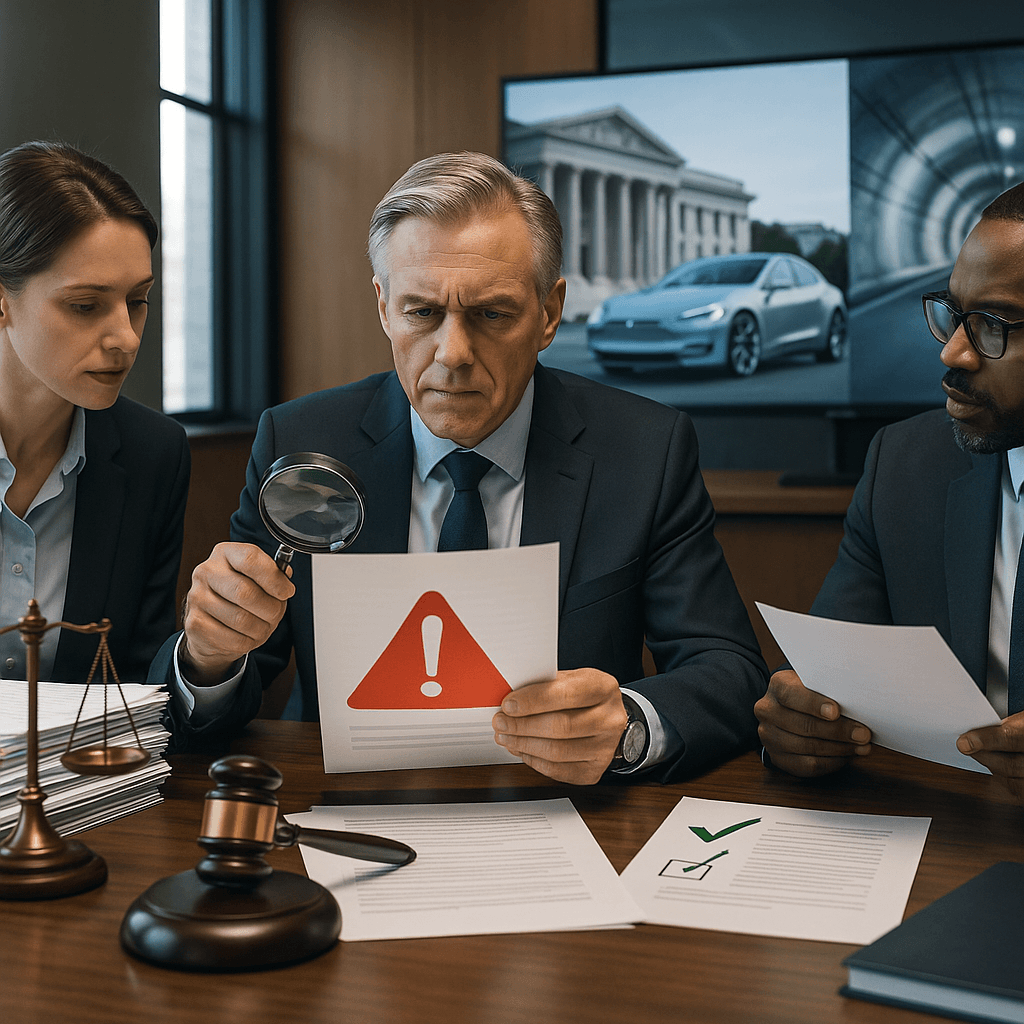It's been a brutal week for Elon Musk's regulatory battles. The Boring Company faces nearly 800 violations in Nevada while Tesla gets slammed by California's insurance regulator and a new NHTSA probe into Full Self-Driving tech. The mounting pressure raises questions about whether regulatory friction could slow down Musk's ambitious timelines across his transportation empire.
The regulatory hammer came down hard on Elon Musk's empire this week, with The Boring Company and Tesla facing a cascade of enforcement actions that could complicate the billionaire's ambitious transportation plans. The Boring Company finds itself accused of nearly 800 violations by Nevada regulators, including digging without approval, dumping untreated water onto city streets, failing to install silt fences, and tracking dirt from construction sites onto nearby roadways, according to a ProPublica investigation. The violations paint a picture of a company that may have moved fast and broken things - literally breaking environmental regulations. Tesla wasn't spared either. California's Department of Insurance hit the EV maker with an enforcement action for routinely denying or delaying customer claims despite years of warnings from the state regulator. The action targets Tesla's insurance arm, which operates in select states as part of the company's broader push into financial services. But the most significant development came from the National Highway Traffic Safety Administration, which opened an investigation into Tesla's Full Self-Driving technology after receiving reports the software caused vehicles to run red lights or cross into wrong lanes. This isn't just another NHTSA probe - it specifically targets Tesla's FSD driver-assistance software, the technology that Musk and Tesla shareholders have pinned the company's future on. The timing couldn't be worse for Tesla's autonomous vehicle ambitions. The company just rolled out the newest version of FSD (v14) and is pushing forward with robotaxis that rely on a version of this same software. While this single investigation likely won't derail Tesla's plans entirely, it represents another layer of scrutiny on technology that Tesla is trying to put front and center. Meanwhile, General Motors appears to be quietly rebuilding its autonomous vehicle capabilities after absorbing the shuttered Cruise robotaxi program. Sources suggest GM is building out an AV team across Austin and Mountain View, just months after the company started rehiring laid-off Cruise employees, according to . The regulatory pressure on Musk's companies comes as the transportation industry faces increased oversight across the board. California Governor Gavin Newsom signed legislation giving and drivers the as independent contractors, while companies like and announced a for autonomous delivery robots across the United States. Tesla also revealed bare-bones versions of the Model 3 and Model Y, starting at $36,990 and $39,990 respectively. But the 'standard' versions are notably stripped down - they don't even include Autopilot, Tesla's basic driver assistance feature. It's a far cry from the $25,000 vehicle Musk once promised, a program that was later scrapped. The regulatory challenges underscore a broader tension in the transportation industry between innovation and oversight. Companies are racing to deploy new technologies while regulators struggle to keep pace with safety frameworks.












